

As a Switch 1 player, you’d have to accept that your console of choice is lagging horribly behind the competition graphically. As such, you’d miss out on many contemporary blockbuster releases that other gamers are enjoying. One of these games was Kingdom Come: Deliverance, an ambitious historical RPG by new developer Warhorse Studios. Luckily, miracles do come true, as many of these did come to Switch over the years. The monkey’s paw does curl, as these advanced games often struggle with the weaker hardware. With the Nintendo Switch 2 being out for a while, this won’t be an issue for long, but there are still many ambitious ports to the Switch 1 that don’t have a Switch 2 enhancement. The aforementioned Kingdom Come: Deliverance is in that exact situation, so let’s check out how well this version of the game holds up.
The game takes place in 1403 in the kingdom of Bohemia, a region of the Holy Roman Empire that’s now part of the contemporary Czech Republic. The ruler of the region, Wenceslas IV, was recently kidnapped and forced to abdicate by his half-brother, Sigismund of Hungary, who is using the opportunity to raid Bohemia. The story follows Henry, an ordinary peasant and the son of a blacksmith, living in the village of Skalitz. One day, the town gets attacked and destroyed by Sigismund’s Cumans, with Henry’s parents among the many casualties. Henry himself barely escapes with his father’s last sword, a commission for the local lord Sir Radzig, and flees to nearby Talmberg to warn them of the attack. Eventually, he returns to Skalitz to bury his parents, where he is almost killed by bandits and loses the sword. He is saved by another survivor, Theresa, and some troops from Talmberg. Once he recovers, he seeks to join the entourage of Radzig to avenge his parents and retrieve the sword.
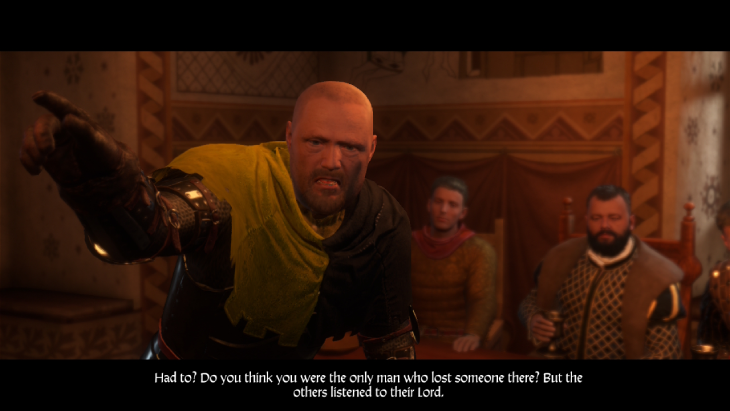
Kingdom Come: Deliverance tells an engaging and historically accurate story, with many of its interesting characters based on real people. The exception is our protagonist, Henry, whom I was initially mixed on. He’s like a stereotypical fantasy protagonist, just without the ‘fantasy’: he yearns for adventure until it’s forced on him, his home is destroyed, his parents are killed, and he’s impulsive and a tad naïve. Because of that, he makes some foolish decisions, but he grows into a better man later in the story. Historical accuracy is a cornerstone of the game, and it definitely makes you feel like you travelled to the Middle Ages, making for an entertaining epic.
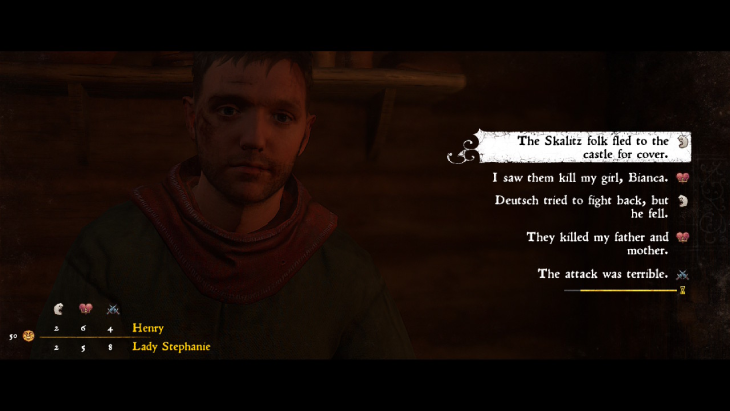
Another cornerstone of Kingdom Come: Deliverance is realism, as many of its mechanics strive to be as realistic as possible. There is no magic in this RPG; the closest you’ll get to a magic system is an alchemy crafting system. In his journey to avenge his parents and retrieve his father’s last sword, Henry will face realistic threats, from arrows to the knee, overeating, and unwashed clothes.
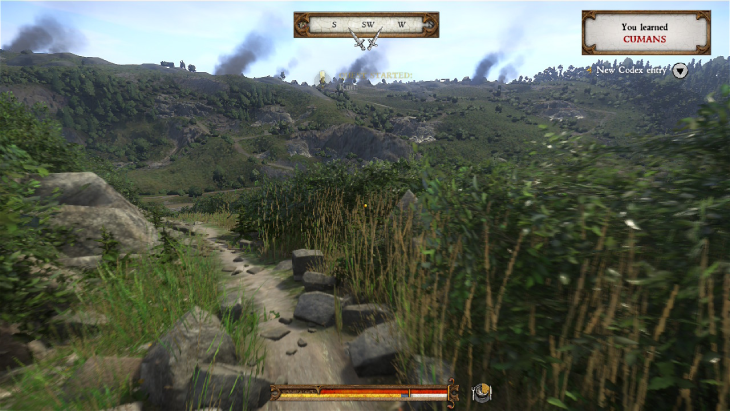
While Henry’s personality is largely set in stone, his skillset is yours to choose. But you cannot just grind out exp and allocate skill points however you wish: just like in reality, if you want to master an ability, you have to repeat it over and over. Do you want to be better at wielding a sword? Get to slashing. Do you want to be a better thief? Get to sneaking, or ask Miller Peshek to help you practice picking locks or pockets. It gives the game’s progression a slow but steady pace.
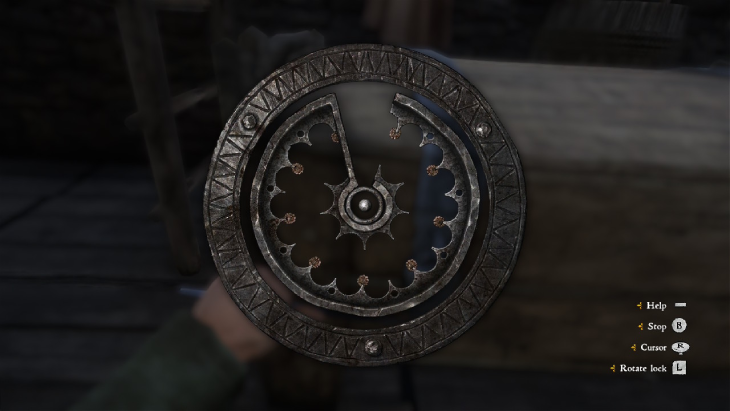
Those skills can then be applied in a variety of scenarios, as almost every problem has multiple solutions. Brute force is often one of them, but presents some issues, as I’ll cover later. The lords of the region also won’t let you get away with whatever, so don’t get caught in the act. You might need to employ sneakier methods, like sneaking through private areas at night, bribing, disguising, or charming your way to success. While there are still some instances where the game will force you to commit to a certain solution, such as violence or theft, for the most part, your Henry can be as charming or as dastardly as you like.
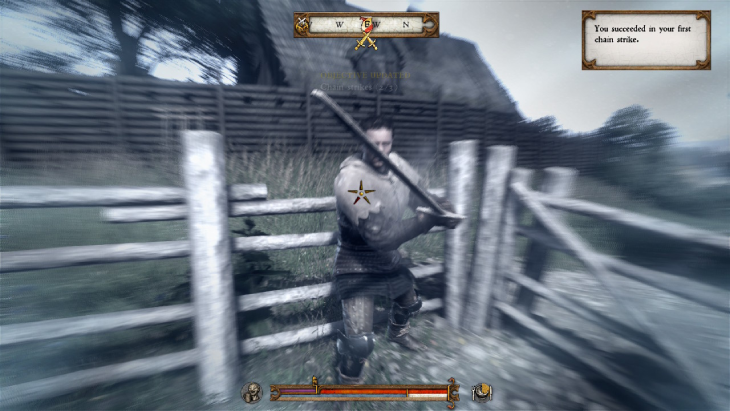
Just keep in mind that you can’t fight on an empty stomach, and you can’t flirt your way into trouble if you’re covered in mud. Naturally, Henry needs energy to do anything, so you’ll need to stock up on food if you have the money, but spend it wisely, as food can go bad, leaving you with illness. You have to be careful not to overeat, either, as it can disable your sprint. I did find keeping up your nourishment to be relatively easy, as you can eat out of random cooking pots around the world with no consequences. If you’ve been out and about too much, you will also get dirty, and everyone will insult you for it if you don’t wash yourself. You can have a quick wash in a random through, or pay up for a thorough washing in a bathhouse, where you can also request “extra” service if you wish.
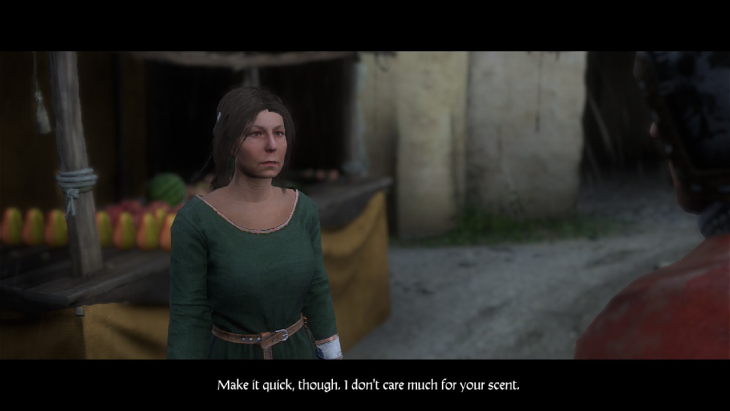
You can’t do all-nighters either, as you eventually have to find a bed and sleep. Sleeping in a bed also allows you to save manually, bringing me to the save system in Kingdom Come: Deliverance. Sleeping is the best way to save, but you can also save while out and about by consuming a ‘saviour schnapp’, a limited consumable you need to buy or craft if you want more. It’s also an alcoholic drink, so it leaves you tipsy after using it. It’s a restrictive system, especially combined with the limited auto-saves, but it’s not as bad as I initially thought. As I mentioned, you can also sleep to save, and there is a “save and quit” option in the main menu.
Inevitably, Henry will cross blades with many a foe, and Kingdom Come: Deliverance presents an intricate and realistic system for swordfighting. However, this quality makes it a system that players might struggle with. You’re always locked onto your opponent and must balance slashes, jabs, guarding, and dodging. By using the right stick, you can change in what direction you slash, letting you feint attacks and catch your opponent off-guard. Additionally, both attacking and guarding drain stamina, giving you an extra resource to work around.
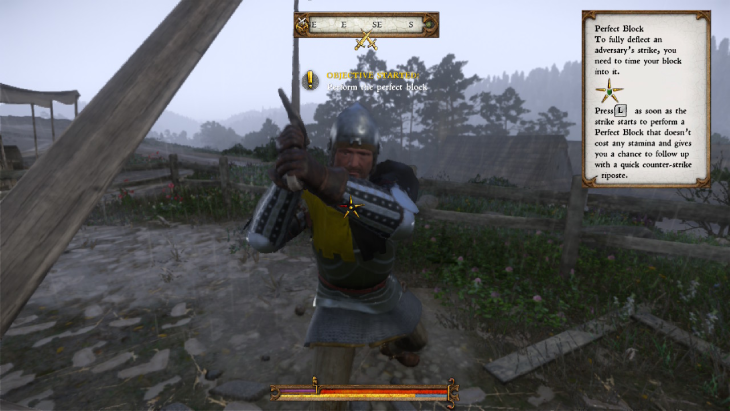
Combat works fine in 1v1s, giving you slow-paced but satisfying duels. However, add some extra enemies, and the fights become more frustrating. Switching targets is annoying, and the slow but steady pace this system is designed to excel at quickly falls apart when you’re forced to scramble against attacks from all sides. Your maximum stamina also drops when you’re wounded, meaning that turning the tables in your favor is incredibly tough. While yes, it is realistic that a single peasant can’t beat multiple trained soldiers, this philosophy doesn’t always lead to entertaining gameplay.
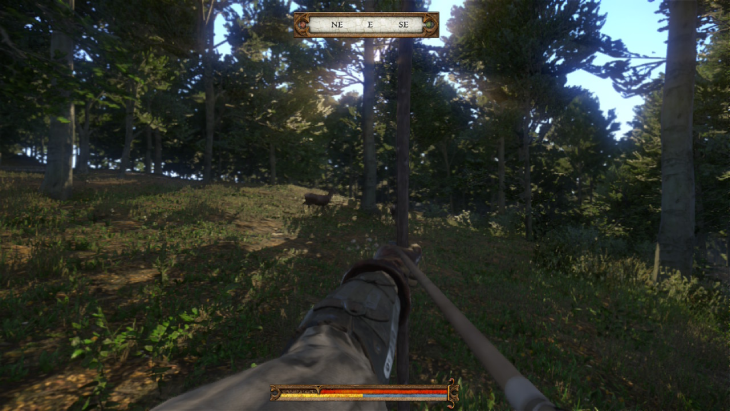
Luckily, charging into an enemy camp with your sword drawn isn’t the only way to draw blood. You can also have a bow and arrow, which also lets you hunt animals for some meat. I did find shooting arrows clunky as well, as there isn’t a reticle to help you aim, and Henry’s aim is unsteady at lower archery levels. Another way to take lives is, of course, stealth, and I found it the most reliable solution to just wait until nightfall and take out bandits or Cumans in their sleep.
Between missions that progress the main story, you can choose to help out various people in Bohemia, from nobility to fellow Skalitz survivors, and these quests involve various activities. As I mentioned earlier, these tasks often have various solutions. For instance, Miller Peshek wants Henry to pay him back for taking care of him for two weeks, and asks you to steal a ring. To do this, you can just sneak into the target’s house at night, convince him to leave, or just buy the ring from him. If you choose to steal, you need to pick locks, which is done through a pretty annoying minigame. It involves holding the cursor over a specific place while you rotate the lock, which can be finicky with a stick. For other items, you might need to pickpocket your target, a minigame with a solid risk-reward factor. However, the tutorials for many of these mini-games and other features are pretty confusing, as they are pretty wordy. I found it best to just start the mini-game and learn as I went.
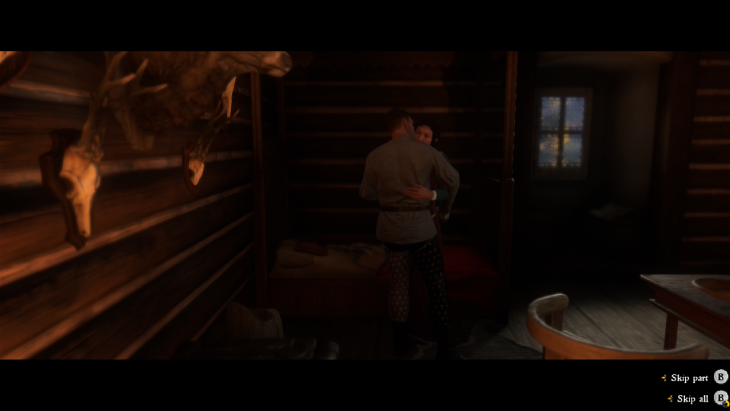
Let’s talk about the elephant in the room: how does the Switch port hold up?
As a historical game striving for realism, its graphics also try to be as realistic as possible. From what I heard, the PC and other console versions do pull this off, but the Switch struggles a lot in this department, as this version of the game doesn’t look very good. The textures look low-quality, there is a lot of pop-in, and models that are far away run at only a couple of frames per second. However, the performance in any other regard was fine. I only had a couple of visual glitches that disappeared as quickly as they appeared, the loading times were manageable, and the game didn’t crash a lot. For what it’s worth, I did play the game on the Nintendo Switch 2, but since there’s no native version for the new console, it shouldn’t have impacted the performance that much. Overall, it’s not the best way to play the game, but it’s certainly not unplayable.
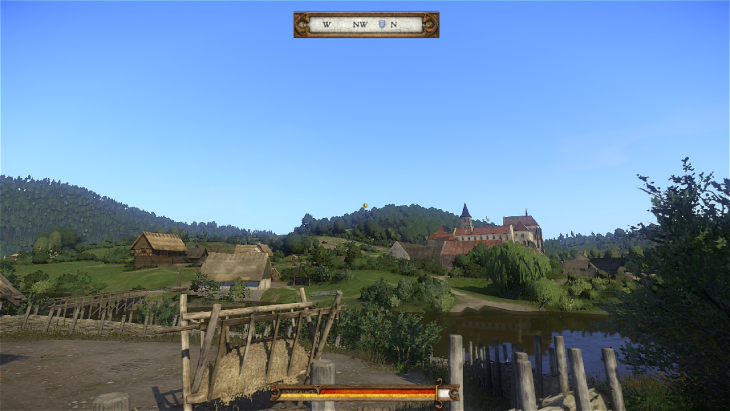
Luckily, any aspect of the presentation not affected by the weak hardware is ported without issue. The voice acting is great, and there are even French, German, and Czech dubs available as free DLC. I also love the menu design, as it invokes the feeling that you’re experiencing Henry’s story through a primary source. One neat little detail is the fact that you can unlock short but sweet explanations of many historical figures, jobs, and other aspects of Bohemian society.
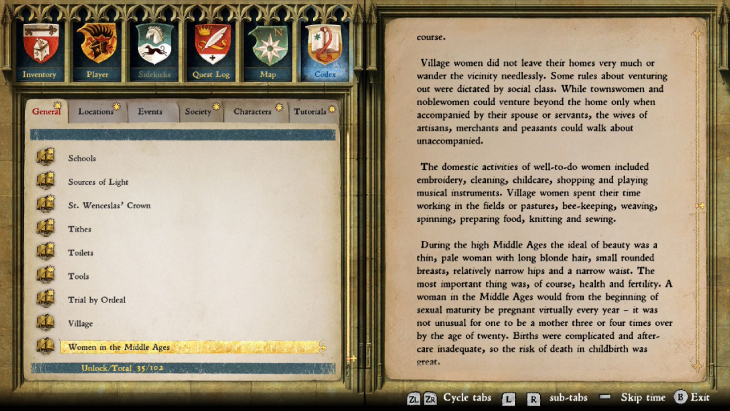
A plethora of games aim to tell fantastical stories, many of which offer a power fantasy to their players. Kingdom Come: Deliverance sets its own course, offering players a realistic experience in a real historical setting. If you’re a history buff with a particular interest in Medieval times, this is an absolute must-play to immerse yourself in Bohemia and experience an accurate recreation of history through the eyes of Henry of Skalitz. However, this game isn’t for everyone, as its focus on realism results in a game that requires a lot of commitment. You will need to keep track of many systems to make sure Henry’s quest succeeds, and commit to learn the game’s intricate systems, many of which are a hit or miss. Combined with the less-than-ideal Switch port, this is a tough game to recommend that still has a lot of charm.
Kingdom Come: Deliverance gets a 7/10.